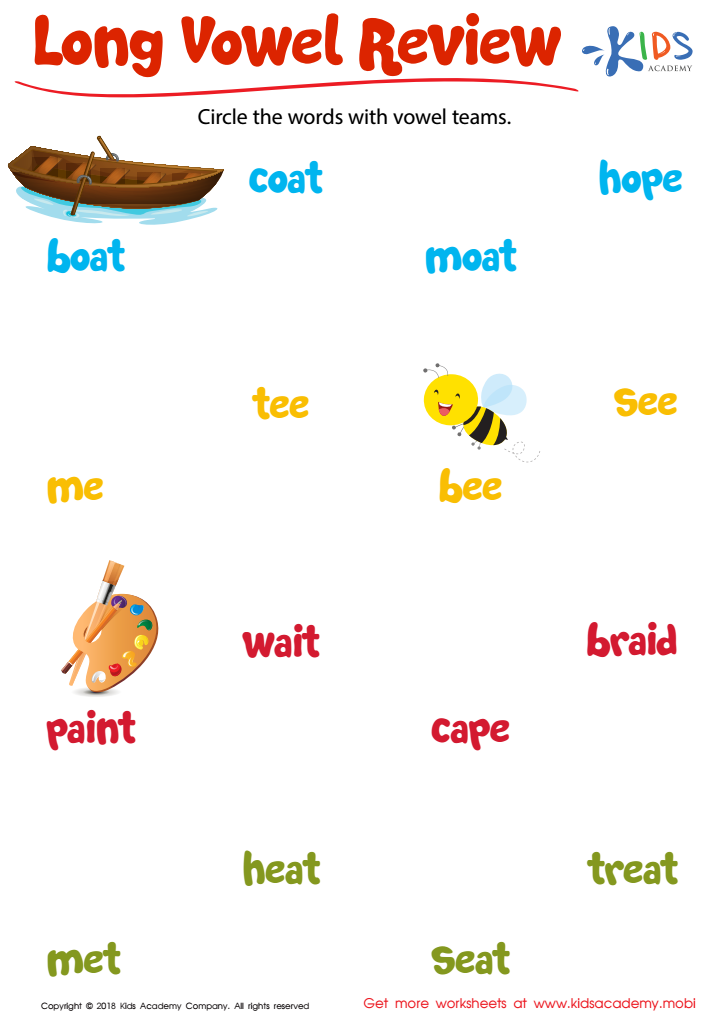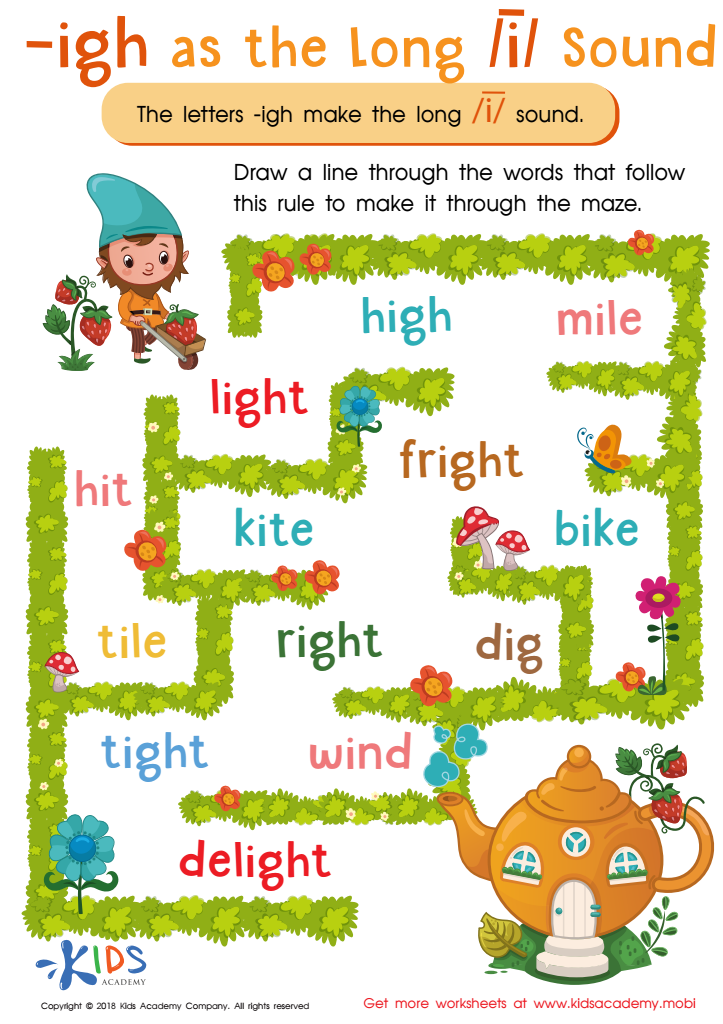Phonics practice Normal Vowels and Consonants Worksheets for Ages 7-9
3 filtered results
-
From - To
Enhance phonics skills for children ages 7-9 with our engaging Normal Vowels and Consonants Worksheets! These worksheets are meticulously designed to support essential phonics practice, helping young learners recognize and differentiate between vowels and consonants. Interactive activities enhance reading fluency and build foundational literacy skills in a fun and effective way. Perfect for both classroom and home use, each worksheet encourages hands-on learning through a variety of exercises that make mastering phonics enjoyable. Equip your child with the tools they need to succeed in reading and writing. Explore our printable resources and watch confidence blossom as they learn!


Long Vowel Review Worksheet


Short Vowel Eggs Worksheet


Reading: IGH as Long I Worksheet
Parents and teachers should prioritize phonics practice focusing on normal vowels and consonants for children aged 7-9 because this foundational skill greatly supports overall literacy development. At this age, children are transitioning from learning to read to reading to learn, making strong phonics skills essential. Phonics instruction helps children decode unfamiliar words, enhance their vocabulary, and improve fluency, all of which are critical for comprehension and academic success.
Understanding how consonants and vowels function enables children to break down words into manageable parts, fostering confidence when encountering reading challenges. This age group is also developing critical thinking and writing skills, which are bolstered by solid phonics knowledge. Children who master phonics are often more engaged readers who enjoy exploring various texts, paving the way for improved communication skills and creativity in writing.
Moreover, early phonics intervention can significantly bridge gaps for struggling readers, ensuring that all children have equal access to learning opportunities. By emphasizing phonics in daily practice, parents and teachers can help cultivate enthusiastic, proficient readers who are well-equipped to navigate their educational journey and engage with the world around them. Thus, nurturing phonics skills at this age lays the groundwork for lifelong literacy.
 Assign to My Students
Assign to My Students








